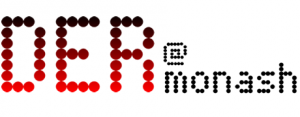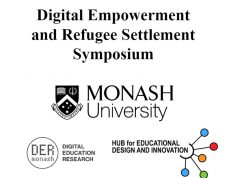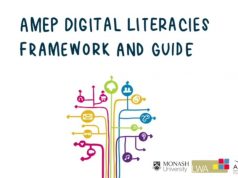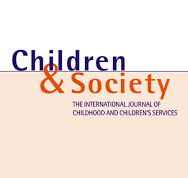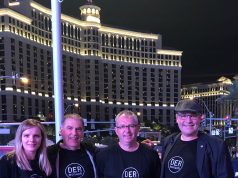
Katrina is a senior lecturer in the Faculty of Education at Monash University. Her current research projects investigate how people use technologies and digital literacies for everyday life, work and learning in different language contexts. Katrina is an author of a number of publications in the field of digital media, literacy and TESOL and an author of Digital Literacies: EAL Teachers’ Guide. She has provided expert advice to the government regarding digital literacies in the EAL curriculum in schools and the AMEP sector. Katrina also designed and led a number of face-to-face and online professional learning activities for EAL teachers. She also teaches in the Faculty’s teacher education undergraduate and postgraduate programs. In 2016, Katrina received the Dean’s Award for Programs that Enhance Learning. Katrina started her career in education as a school teacher in Belarus. Before moving to Australia, she taught English and Spanish in a variety of contexts from primary to tertiary education.
- Email: katrina.tour@monash.edu
- Twitter: @katrina_tour
- Research Gate: Katrina Tour
- Digital Literacies: EAL Teachers’ Guide
Research interests:
- Digital/new literacies
- The use of digital technologies in language education including TESOL
- Digital parenting
- Multimodality
- Critical pedagogy and technology
- Sociocultural theories of language, technology and education
- Visual research methodology
.
2021
AMEP Digital Literacies Framework and Guide: Supporting Pedagogies for Digital Literacies in the Adult EAL Contexts (Linda Wyse & Associates Pty Ltd / Department of Home Affairs)
Home Languages in the English Classroom: Working with Multilingual Texts (Catholic Education Commission Victoria)
2020
Learning through languages: Plurilingual pedagogy in the English classroom (Department of Education and Training – VIC)
2019
Professional Standards for Teachers of Online Live Language Training (AI English Pty Ltd)
Supporting multiliteracies of LBOTE students in an after-school learning program: Partnership between schools, families and teacher education institutions (Early Years Academic Community Research Fund)
2018
Supporting EAL teachers’ pedagogies for digital literacies (TELAPL AC Collaborative Research Fund)
2017
Digital literacies in EAL (English as an Additional Language) contexts: a survey of in-service teachers in Victoria, Australia (Dean’s ECR Award)
2016
Improving refugee students’ access to digital literacies: integrating transmedia storytelling in EAL (Year 7) classrooms (VicTESOL Inaugural Research Grant 2016)
Personalised Professional Coaching Program for Schools
Tour, E., & Barnes, M. (2021). Engaging English language learners in digital multimodal composing: pre-service teachers’ perspectives and experiences. Language and Education, 1-16.
Ludecke, M., Rutherford, S., Sawatzki, C., Rady, D., Gindidis, M., Marangio, K., & Tour, E. (2021). Paradoxes of in-school teacher coaching by outsiders. The Australian Educational Researcher, 1-23.
Tour, E., Creely, E., & Waterhouse, P. (2021). “It’s a black hole..”: exploring teachers’ narratives and practices for digital literacies in the adult EAL context. Adult Education Quarterly. https://doi.org/10.1177/0741713621991516
Tour, E. Gindidis, M. & Newton, A. (2021). Learning digital literacies through experiential digital storytelling in an EAL context: an exploratory study. Innovation in Language Learning and Teaching, 15 (1), 26-41. https://doi.org/10.1080/17501229.2019.1659278
Tour, E. (2020). Teaching digital literacies in EAL/ESL classrooms: Practical strategies. TESOLJournal, 11(1). DOI:10.1002/tesj.458.
Tour, E. (2019) Transmedia storytelling in education. In M. Peters and R. Heraud (Eds.) Encyclopedia of Educational Innovation. Springer, Singapore. https://doi.org/10.1007/978-981-13-2262-4_127-1
Tour, E. (2019). Supporting primary school children’s learning in digital spaces at home: migrant parents’ perspectives and practices. Children and Society, 33(6), 587-601 https://doi.org/10.1111/chso.12347
Creely, E., & Tour, E. (2019). EAL teachers’ professional learning about digital literacies: a socio-material perspective. In K. Graziano (Ed.), SITE 2019: Proceedings of Society for Information Technology & Teacher Education International Conference (pp. 1302-1309). Waynesville NC USA: Association for the Advancement of Computing in Education (AACE).
Tour, E. (2017). Understanding digital literacy practices: What can be learnt with visual methods? Changing English, 24(4), 413-425.
Tour, E. (2017). Teachers’ personal learning networks (PLNs): exploring the nature of self-initiated professional learning online. Literacy, 51(1), 11-18.
Tour, E. (2017). Teachers’ self-initiated professional learning through personal learning networks. Technology, Pedagogy & Education, 26(2), 179-192.
Snyder, I. & Tour, E. (2016). Research Approaches to the Study of Literacy, Learning, and Technology. In K. King et al. (eds.), Research Methods in Language and Education, Encyclopedia of Language and Education. Switzerland: Springer International Publishing (pp. 1-12).
Tour, E. (2015). Digital mindsets: Teachers’ technology use in personal life and teaching. Language Learning & Technology, 19(3), 124–139.
Phillips, M., Tour, E., Henderson, M. & Snyder, I. (2012) Giving students a ‘Second life’. In T. Islam, O. Lee, J. Peterson & M. Piscioneri (Eds.), Effectively implementing Information Communication Technology in Higher Education in the Asia-Pacific Region. New York: Nova Science Publishers. (pp. 143-159).
Giving research students a ‘Second Life’.pdf
Tour, E. (2012). Rethinking technology use in ESL education. In B. Green & C. Beavis (Eds.), Literacy in 3D: An integrated perspective in theory and practice. Melbourne: ACER Press. (145-159).
Tour, E. (2012). Critical literacy and ICT: experiences of ESL students in Australia. In P. Chan (Ed.) Asia Pacific Education: Diversity, Challenges and Changes. Monash University ePress. (142-154).
Critical literacy and ICT.pdf
Tour, E. (2012). TESOL in times of change. Monash University Linguistic Papers. Special Issue, 8 (1), 11-21.
TESOL in times of change.pdf
Tour, E. (2012). Cross-cultural journey into literacy research. English Teaching: Practice and Critique. Special Issue, 11 (2), 70-80.
Tour, E. (2011). Design literacies: learning and innovation in the digital age. [Review of the book Design literacies by M. Sheridan and J. Rowsell]. English in Australia, 46(3), 101-103.
Tour, E. (2010). Technology use in ESL: an investigation of students’ experiences and the implications for language education. TESOL in Context, 20 (1), 5-22.
Tour, E. (2010). Laptops and literacy: learning in the wireless classroom. [Review of the book Laptops and literacy: learning in the wireless classroom by M. Warschauer]. English in Australia, 45 (1), 55-57.
Tour, E. (2009). Methodological 3-D model for foreign language education at school. The Teacher. Professional Journal (Moscow, Russia), 6, 85-87.
Tour, E. (2009). Electronic email in foreign language education. The Teacher. Professional Journal (Moscow, Russia), 1, 76-79.
Best Paper Award (2021)
The 4th International Conference on Education 2021 “Innovative and Sustainable Education in Times of Challenges”
ACTA Conference Scholarship (2018)
VicTESOL
Dean’s Award for Programs that Enhance Learning (2016)
Faculty of Education, Monash University
Vice-Chancellors Commendation for Master Thesis Excellence (2009)
Faculty of Education, Monash University
Australian Postgraduate Award (2010)
Faculty of Education, Monash University
Excellence in Teaching Award (2003)
Department of Education. Oktyabrsky City Council (Belarus)
Teacher of the Year (2004)
Department of Education. Oktyabrsky City Council (Belarus)
The Parents website – Independent Schools Victoria (August, 2020). Five ideas for parents with young children in lockdown.
Triple M Central Queensland (January, 2020). How to help your kids with homework
Conversation (2020). How to help your kids with homework (without doing it for them).
TeachSpace (2019). How school-family-community partnerships strengthen learning in culturally diverse schools.
Tour, E. (2019). DER’s response to proposed changes in the Victorian EAL Curriculum.
